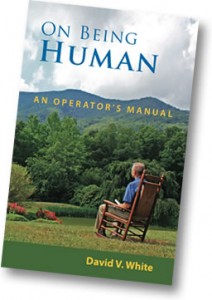While these are not books the Dew is reviewing, I thought I would pass along info on them as readers might have an interest. Both deal with Humanity, Emotion and the Complexity of Life.
Idg
_______________________________________________________________________________________
Sonya Fitzpatrick is widely regarded as the most experienced and
trusted animal communicator in the world. Using her personal experiences, as
well as the stories of the families she'ss worked with, this
September marks the release of her third book, THERE ARE NO SAD DOGS IN HEAVEN (Berkley Trade Paperback;
September 3, 2013; ISBN: 9780425261132; $15.00), which sheds light on the
questions that every grieving pet owner has, and assures readers that there
are, in fact, no sad dogs (or cats or birds
or turtles or horses or cows…) in heaven.
For most of us, our pets are part of the family.
They empathize with our moods even when no one else does. For
many, they're as close as children; for some they may be our only
children. And while most of us can expect that our children will outlive us,
sadly, our pets almost never do.

When people ask Sonya Fitzpatrick to communicate with a living animal companion it's usually because they wish their pet could talk. But the vast majority of calls that Sonya receives are from people whose pet has died. And the grieving pet owner is almost always distraught, heartbroken, and beset by questions that can only be answered by someone who has the gift of communication with animals in spirit. When we lose our beloved animals we wonder where they are, and desperately want to know if they know how much we loved and will miss them. As much as we wanted to talk to them when they were alive, we wish even more that we could talk to them after they've passed.
About the Author:
Growing up on a farm in England,
Sonya Fitzpatrick realized at an
early age that she had a very special connection with animals. Her extensive
work helping animals handle adversity has distinguished her as an expert in the
field of animal communication. Sonya's passion for animals and her
understanding of the critical role they play in our lives provides a unique
perspective on the way we need to interact with all of the animals in our
world. Sonya lives in Texas
with her nine cats, four dogs, one horse and three frogs.
Visit Sonya online: www.sonyafitzpatrick.com_____________________________________
If only life came with a set of instructions, our journeys might make a little more sense. In On Being Human: An Operator’s Manual,
author David V. White leads the way, asking tough questions and
providing simple, engaging, insight that he found after several decades
of intense introspective work.
On Being Human: An Operator’s Manual publishes mid-August via CreateSpace. The book is 206 pages.
 Sitting on his porch, overlooking the Tennessee mountains, White tackles questions on
how to live life fully, exploring cultural, psychological, rational,
and various other aspects by which we categorize our lives. He then
probes the points where complexities overlap, exploring the spots where
conflicting black and white ideologies form varying shades of gray.
Interacting with the reader as a wise friend, White uses his experience
in business, politics and private life to guide readers on
an inward journey. Having more than a 20-year background in teaching
spiritual growth workshops, White’s interspersed “thought experiments”
truly customize the reader’s experience, providing not only a manual of
sorts but a careful, thought-induced, individualized path.
Sitting on his porch, overlooking the Tennessee mountains, White tackles questions on
how to live life fully, exploring cultural, psychological, rational,
and various other aspects by which we categorize our lives. He then
probes the points where complexities overlap, exploring the spots where
conflicting black and white ideologies form varying shades of gray.
Interacting with the reader as a wise friend, White uses his experience
in business, politics and private life to guide readers on
an inward journey. Having more than a 20-year background in teaching
spiritual growth workshops, White’s interspersed “thought experiments”
truly customize the reader’s experience, providing not only a manual of
sorts but a careful, thought-induced, individualized path.
On Being Human: An Operator’s Manual talking points include:
• Our worlds are created by stories, not by facts.
• The moments of our lives are chips with
which we place our bets in the casino of life. A constant issue of
living is the question of where we will place those bets, where we will
gamble with the moments of our days.
•
Modern life tends to divide life into categories and then think about
and deal with the issues separately. This is valuable for specific
tasks, as well as science and engineering, but it is a very unskillful
way to make life decisions.
•
Each person rejects many things and accepts many things that they have
little or no evidence for rejecting or accepting. They do so on the basis of cultural conditioning and unconscious acts of faith.
• Values have been central to human
life since our beginnings, yet all attempts to explain where they come
from or to determine which are most important have been woefully
inadequate.
Additional information on the book and its author, David V. White, available at http://www.ameaningfullife.
_________________________________________________
